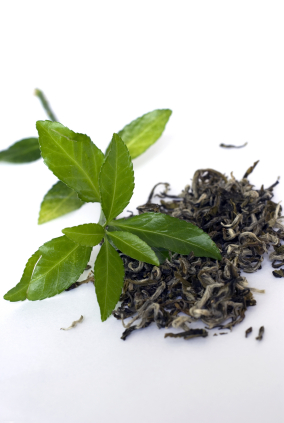
Tea as the most commonly consumed fluid in the world after water offers important health benefits, and hence every individual is recommended to take at least 6 to 8 cups of the beverage daily.
The belief in tea as a medicinal drink can be rooted back to history in China, where demand for the new healing medium grew slowly, and by 350 CE drinking tea was common there, as many grew the herb privately.
Green tea was first studied for its cancer-fighting benefits, and recent research shows that any tea derived from the leaf of a warm-weather evergreen known as Camellia Sinensis has similar properties. The leaves of this tree contain chemicals called polyphenols, which give tea its antioxidant properties.
Eight cups of tea a day good for heart, brain
Date: 13 November 2009, 12:00am IST
Drinking eight cups of tea daily might sound a bit too much for some people, but health experts say the intake can help fight heart disease,
Independent dietician Dr Carrie Ruxton’s research on caffeine at King’s College, London, saw her review 47 published studies to reach the conclusion that caffeinated drinks such as tea, coffee and cocoa have positive effects on mental function, increasing alertness, feelings of well-being and short-term memory.
Previous studies have already linked the drink’s healthy antioxidant properties and high flavonoid content to preventing heart disease and cutting the risk of some cancers.
Ruxton has supported earlier reports by claiming that an optimal intake of 400mg of caffeine a day leads to "key benefits in terms of mental function and heart health".
She assessed three studies, accounting for almost 90,000 patients, to find that drinking four cups of tea or coffee a day reduced chances of cardiovascular disease.
She referred to another study of 26,500 middle-aged smokers, which hinted that men who ingested more than two cups of tea a day pulled down the probability of getting a stroke by 20 percent.
Ruxton insisted that she aimed to "debunk" false beliefs surrounding caffeine.
Moreover, she asserted that people who avoid drinking team might be doing more harm than good.
"People who cut out caffeinated drinks may miss out on the potential health benefits of the compounds they contain," the Daily Express quoted her as saying.
She further suggested that there was "no need" for parents to stop children from drinking tea and coffee.
In fact, she claimed it was better than juice in some regards.
Also, Dr Catherine Hood, of the Tea Advisory Panel, agreed to Ruxton’s claims.
She said: "Caffeinated drinks have been unfairly demonised. Black tea, in particular, contains polyphenols, which are natural plant antioxidants.
"These have beneficial effects on many biochemical processes in the body because they protect cells against harmful free radicals.
"Flavonoids are thought to be especially useful, with a number of studies reporting a link between them and lower risk of heart attack."
Green tea helps fight eye diseases
Date: ANI, Apr 22, 2010, 11.07am IST
Scientists have discovered that green tea can help prevent glaucoma and other eye diseases.
They have found that the healthful substances found in green tea — renowned for their powerful antioxidant and disease-fighting properties — do penetrate into tissues of the eye.
The new study has documented how the lens, retina, and other eye tissues absorb these substances.
Chi Pui Pang and colleagues pointed out that so-called green tea 'catechins' have been among a number of antioxidants thought capable of protecting the eye.
Those include vitamin C, vitamin E, lutein, and zeaxanthin. Until now, however, nobody knew if the catechins in green tea actually passed from the stomach and gastrointestinal tract into the tissues of the eye.
The researchers resolved that uncertainty in experiments with laboratory rats that drank green tea. Analysis of eye tissues showed beyond a doubt that eye structures absorbed significant amounts of individual catechins.
The retina, for example, absorbed the highest levels of gallocatechin, while the aqueous humor tended to absorb epigallocatechin. The effects of green tea catechins in reducing harmful oxidative stress in the eye lasted for up to 20 hours.
"Our results indicate that green tea consumption could benefit the eye against oxidative stress," the study concluded.
The study appears in ACS' bi-weekly Journal of Agricultural and Food Chemistry.









